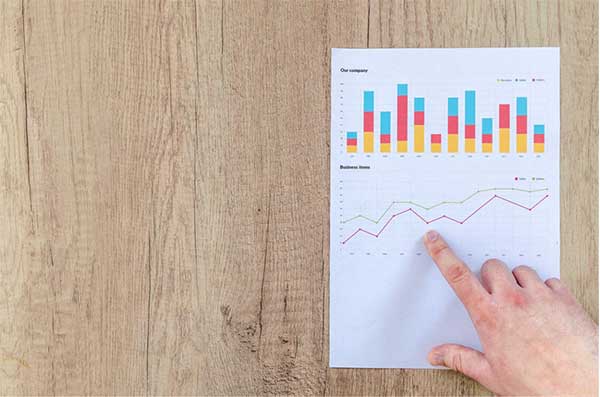Employing precise carbon accounting across your entire supply chain is the only way to properly manage Scope 3 and reduce emissions.
By Alexis Normand
For companies looking to achieve (and maintain) global success, “climate change” and “sustainability” have become increasingly important topics to pay attention to, especially as it is now more difficult to attract the interest of investors or new customers without making an effort to reduce environmental impact and emissions. This has only become more urgent in the wake of the IPCC’s latest report warning of the catastrophic consequences that continued inaction on climate change would entail. While there are a multitude of tactics that can be implemented by those looking to reduce their emissions, there is one fundamental step that is key to ensure long-term success in emission reductions and prevent greenwashing: Implementing precise carbon accounting measures across your entire supply chain.
Carbon accounting, also commonly referred to as greenhouse accounting, is a method of calculating how much carbon dioxide and greenhouse gas emissions are produced by an entity. There are two main approaches to carbon accounting: including the spend-based method and the activity based method. Both approaches to carbon accounting help to reduce emissions as they provide the entity seeking to reduce their carbon footprint with the data they need – a baseline assessment of their current footprint. In fact, it is difficult – not to say impossible – to efficiently reduce emissions without the awareness of the current environmental impact to be had from a company’s industrial activities.
In addition to this, carbon accounting helps to avoid greenwashing and promote transparency – as the data provided by carbon accounting can be used to demonstrate a company’s commitment towards environmental reform.
An industry’s supply chain refers to the network of various companies and individuals that provide raw materials throughout the process of the production of a product, and is also at the heart of a company’s Scope 3 emissions. Scope 3 refers to emissions that come from activities outside of a businesses individual operations, which could include anything from use of raw materials, purchased goods or services, transportation such as employee commuting, leased assets, franchises, investments, and business travel. Scope 3 also tends to make up the majority of emissions in a company’s carbon footprint.
Think of an industry’s supply chain as trying to monitor the activities of a dozen employees. It is hard to learn about all of the employee’s individual activity while being unable to allocate such precise attention, but if companies seek to execute carbon accounting methods such as by sending questionnaires for suppliers to fill out – they can get a better grasp on the individual environmental impact of their suppliers.
This is because a supply chain can be contributing to excess emissions in ways that the company may be unaware of and unable to change: such as the type of machinery used by the supplier or how the final product is delivered. Given a supply chain can refer to any place that a product is before falling into the hands of a customer – suppliers have more than one opportunity to contribute to a larger than optimal carbon footprint for the company they are providing these materials.
Supply chain awareness and management is vital for all businesses looking to reduce their emissions in the long run, and the benefits don’t stop there – as a more efficient supply chain can also result in reduced business costs, improved sustainability, and efficiency in production. All of the benefits of supply chain awareness will not only amount to a successful set-up to help consistently reduce emissions, but also attract new customers interested in sustainability that might help the business grow.
It’s easiest to relate the ideal of implementing precise carbon accounting measures across an industry’s entire supply chain to someone trying to get a hold on their finances and budget. If you’re making money but keep finding that there’s barely anything left in your account, you would first try to keep tabs on what you’re spending on in order to make cut backs and achieve your goal. This is the same idea of the importance of carbon accounting.

In order to successfully reduce emissions in the long-run, there needs to be a running tally depicting where those excess emissions are coming from – as it’s impossible to start reducing emissions if companies don’t even know where to start. Consistent monitoring is essential for consistent reduction, otherwise, the measures being taken to reduce those emissions are being taken from previous data, or even worse – incorrect or no data at all. This is why teaming up with a carbon accounting platform can help companies to develop the plan they need to effectively reduce emissions in the long-term.
At a time when pushes for sustainability and reducing carbon footprints is as urgent as ever, it’s important for companies to realize that not only is reducing emissions across their entire supply chain, Scope 3 included, possible, but it’s also necessary.

Alexis Normand is CEO and Co-Founder of Greenly, a leading carbon accounting platform helping 1,000+ companies on their climate journey. Before this, he co-founded Embleema, a Techstars company that offers a bioinformatics platform used by the FDA.
Scott Ellyson, CEO of East West Manufacturing, brings decades of global manufacturing and supply chain leadership to the conversation. In this episode, he shares practical insights on scaling operations, navigating complexity, and building resilient manufacturing networks in an increasingly connected world.